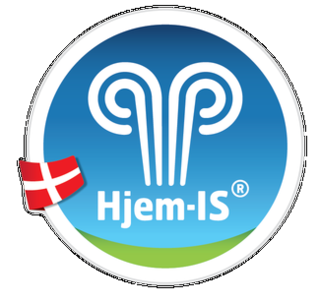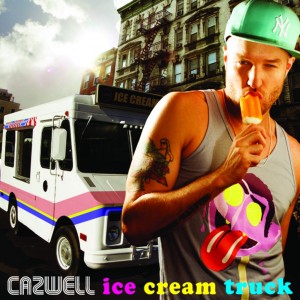 W
WAn ice cream van (British) or ice cream truck (American) is a commercial vehicle that serves as a mobile retail outlet for ice cream, usually during the summer. Ice cream vans are often seen parked at public events, or near parks, beaches, or other areas where people congregate. Ice cream vans often travel near where children play — outside schools, in residential areas, or in other locations. They usually stop briefly before moving on to the next street. Along the sides, a large sliding window acts as a serving hatch, and this often displays pictures of the available products and their prices. Most ice cream vans tend to sell both pre-manufactured ice pops in wrappers, and soft serve ice cream from a machine, served in a cone, and often with a chocolate flake, a sugary syrup, or toppings such as sprinkles. While franchises or chains are rare within the ice cream truck community, some do exist.
 W
WArnold v Teno, [1978] 2 SCR 287 is a leading tort case from the Supreme Court of Canada. This decision was part of a trilogy of personal injury cases including Andrews v Grand & Toy Alberta Ltd (1978) and Thornton v Prince George School Board (1978).
 W
WBig Gay Ice Cream (BGIC) is a New York City-based company that started with an ice cream truck and now operates 4 storefronts in the city and one in Philadelphia. Co-founded by Doug Quint and Bryan Petroff, BGIC specializes in soft serve ice cream cones, cups, and novelties with a menu of unique and unusual flavors and toppings. BGIC is part of a wider trend of gourmet and upscale food trucks popular in the United States.
 W
WFrosty Treats, Inc. v. Sony Computer Entertainment America, Inc., 426 F.3d 1001, is a trademark case in which the United States Court of Appeals for the Eighth Circuit held that the name of one of the largest ice cream truck franchise companies in the United States was neither distinctive nor famous enough to receive protection against being used in a violent video game.
 W
WThe Ice Cream Wars were turf wars in the East End of Glasgow, Scotland, in the 1980s between rival criminal organisations selling drugs and stolen goods from ice cream vans. Van operators were involved in frequent violence and intimidation tactics, the most notable example of which involved a driver and his family who were killed in an arson attack that resulted in a twenty-year court battle. The conflicts generated widespread public outrage, and earned the Strathclyde Police the nickname of "Serious Chimes Squad" for its perceived failure to address them.
 W
WGood Humor is a Good Humor-Breyers brand of ice cream started in Youngstown, Ohio, USA in the early 1920s with the Good Humor bar, a chocolate-coated ice cream bar on a stick sold from ice cream trucks and retail outlets. It was a fixture in American popular culture in the 1950s when the company operated up to 2,000 "sales cars".
 W
WHellBent is a book by Anthony McGowan, published in 2005. It tells the story of Connor O'Neil and his dog, who are killed by an ice cream van and sent to hell. It was received very well, despite being called "Down-right disgusting just for the sake of it".
 W
WHjem-IS, Hemglass (Sweden) or Kotijäätelö (Finland), all meaning "Home Ice Cream", is a Northern European brand of ice cream. It is known for its distribution system, being delivered to people's homes by its light blue ice cream vans and selling ice creams by the box, in contrast to ice cream vans other places in the world. In Sweden, the van has a signature tune that is similar, but not identical to the Laurel and Hardy theme music; in Denmark, it rings a bell.
 W
WIce Cream Man is a business entity that gave away 500,000 free units of ice cream since its founding in 2004 In the process the organization became a fixture at music festivals across the United States. Ice Cream Man had over 100 volunteers committed to the idea of free ice cream for all.
 W
W"Ice Cream Truck" is a song by American rapper Cazwell. The song has been described as a light, easy and '80s-sounding hip-hop song that uses a xylophone to emulate a jingle played on an ice cream truck. The single was released in August 2010, and is a track on the deluxe edition of Cazwell's second album Watch My Mouth.
 W
WJack and Jill Ice Cream Company was founded by Max Schwartz in 1929 in Philadelphia, Pennsylvania. Schwartz sold ice cream he carried through the streets of Philadelphia. In 1936, the company purchased its first ice cream truck for selling ice cream. In addition to trucks, the company also sells ice cream to restaurants and catering services, in stores, and in vending machines throughout the Mid-Atlantic United States. Jack and Jill is credited with creating and launching the Choco Taco, which it later sold to Good Humor-Breyers.
 W
WKona Ice is a mobile, Hawaiian-style shaved ice franchise based in Florence, Kentucky. The company was founded by Tony Lamb in 2007. Lamb is Kona Ice's CEO. It was named one of the fastest growing franchises in the United States. The company's mascot is an animated penguin named Kona.
 W
WMobile Softee (雪糕車) is an ice cream vendor in Hong Kong. In Hong Kong, Mister Softee, owned by the Ng Enterprises Ltd., consists of a number of ice cream trucks. The red, white, and blue exterior of the trucks together with The Blue Danube tune they play are part of the collective memory of many Hong Kongers. Mister Softee's Hong Kong operation was renamed to Mobile Softee in 2010.
 W
WMr. Whippy is a genericized trademark commonly used to refer to soft-serve ice cream in a cone. The mark has been adopted as the business name of many manufacturers, distributors and sellers of ice cream and frozen yogurt products around the world.
 W
W"We All Scream for Ice Cream" is an episode of the series Masters of Horror directed by Tom Holland. It was based on the story "You Scream, I Scream, We All Scream for Ice Cream" by John Farris; the title evoking the famous song "I Scream, You Scream, We All Scream for Ice Cream".